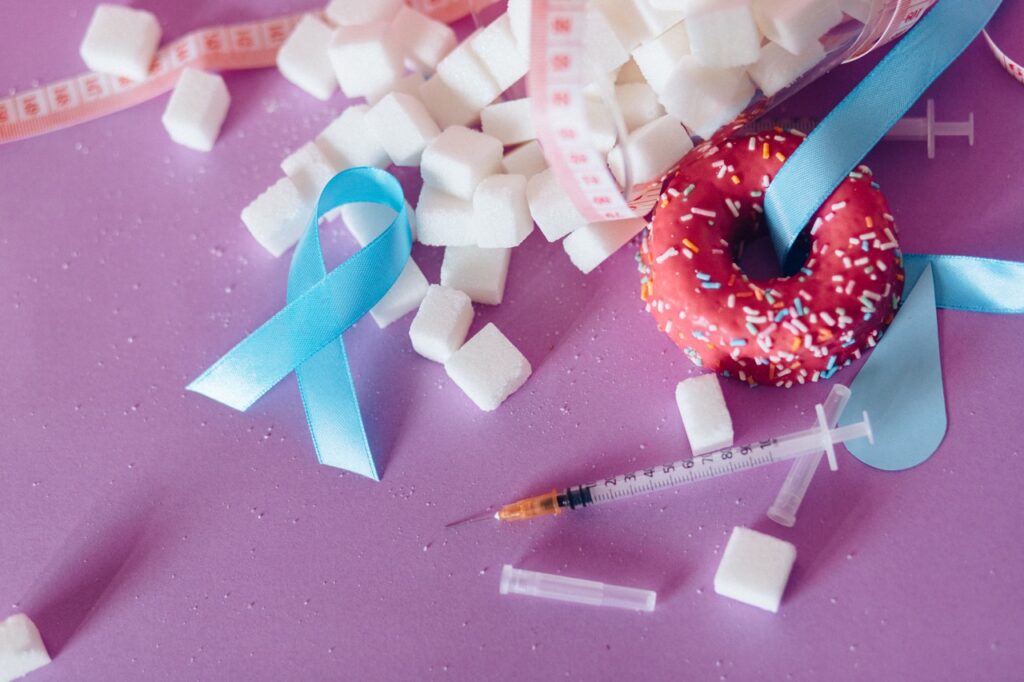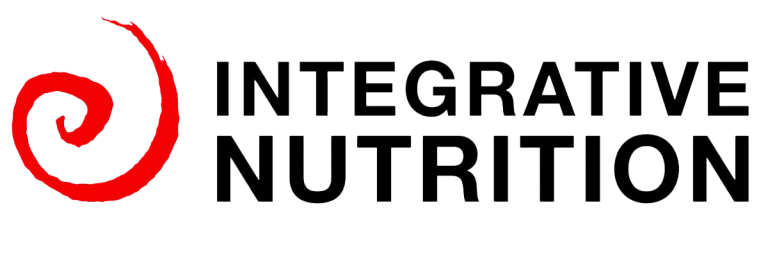The story behind insulin and its importance
- Nadia Kawash
- Diabetes
Picking up on last month’s blog post about blood sugar, I wanted to focus on insulin this month, which is closely linked to blood sugar.
Too high or too low can result in type 1 or type 2 diabetes. Insulin is a hormone released by the pancreas and its main responsibility in the body is to make sure that blood sugar levels don’t rise too high in our bloodstream and to convert the sugar into energy (ATP) inside the cell for immediate use. If it remains elevated or can’t get into the cells due to being faulty or overworked, it causes a lot of damage to the lining of the blood vessels.
Imagine it like thick syrup. Insulin’s purpose is to signal to the cells to open their gates and allow the sugar to get out of the bloodstream. The health of the blood must be maintained at all costs. If this signal becomes faulty then the blood sugar levels begin to rise, the syrup thickens and begins to cause oxidative damage to the lining of the arteries and the progression of the disease begins (cardiovascular disease).
While insulin helps convert glucose into glycogen in the liver and muscles for storage, its primary role is to regulate blood glucose levels by facilitating glucose uptake into cells for energy. Additionally, insulin promotes the synthesis of fats and proteins and inhibits the breakdown of stored glycogen, fats, and proteins, ensuring a constant source of energy for the body when needed. It is a self-built-in mechanism that keeps fueling the brain and the rest of the body on autopilot until real food comes in and replenishes its stores.
We need to ask the question: when is insulin released? It is released from the pancreas and is extremely sensitive to carbohydrates and less to protein and fat. As soon as it senses any carbs (processed, refined, complex or starchy) entering the mouth, insulin is automatically released. This is why the quality of carbs that we consume is very important.

I have listed below the Typical carbohydrates in the modern world that break down much faster into sugar due to them being stripped of fiber or because they contain a very high glycemic load (higher amounts of sugar)
- Bread, pasta, rice, oats, all types of potatoes
- Everything that is refined and fried
- All types of flour
- Starchy vegetables (e.g. pumpkin, corn)
- High glycemic fruits and dates
- Dairy – although considered a protein, breaks down into sugar which is a Carbohydrate
- Sweets, biscuits, cookies, cakes, ice cream, chocolate, pastries
- Honey, maple, agave and other sweeteners
Healthier carbohydrate options due to the fiber content in them which helps reduce the level of sugar in the blood:
- Root vegetables
- Pulses
- Legumes
- Berries
- Whole grains
To recap what I just mentioned:
- We must consume a diet that is made of complex carbohydrates that contains fiber in it to help reduce the release of insulin.
- Stay away from refined carbs and processed foods.
- Insulin’s main purpose is to maintain blood sugar balance.
- Insulin shuttles the sugar into the cells to fuel the cells to make ATP.
- The remaining sugar gets converted to glycogen to be stored in the muscles for immediate use when needed.
- Any excess sugar the body can’t dispose of gets stored in the liver as triglycerides and into the fat cells as fat because the fat cells tend to expand and carry and store all the toxins the body wants to dispose of by keeping it under control.
What is happening in today’s world is that we humans have become more carb metabolizers rather than fat metabolizers due to the diet we are consuming. What that means is the energy or fuel we burn in our body from the ATP in our cells is coming from carbohydrates rather than from fat because our diet is higher in refined and processed carbs/sugar than good fats (nuts and seeds, fatty fish, avocado, olive, coconut oil, etc.). As I mentioned in previous blog posts, the body burns more energy from fat, followed by protein and then by carbs. We need to shift that process back to allowing the body to become a better fat burner rather than a carb burner.
Our Insulin levels are on the rise. Unfortunately, the medical system does not seem to prioritize this marker and rarely checks for it. In functional medicine, this is the first marker we ask to look at simply because fasting glucose is the last marker out of the 3 markers to go up. HbA1c is the average blood glucose over 3 months and fasting insulin tells us if there is too much sugar roaming around in your blood and if the hormone is working properly.
We need to check the blood markers in this order:
- Fasting insulin
- HbA1c
- Fasting glucose
To maintain optimum levels of insulin and to help keep blood sugar spikes low, it is very important to consume foods high in fiber, dark leafy greens, animal protein, and clean fats. Always dress your carbs with protein and fat and never eat carbs alone. You will not only lose weight, but you will also end up eating healthier because you will crowd out the processed and refined carbs from your diet. This will end up being a bonus and will naturally change your diet and lifestyle habits.
I hope you found this blog post helpful. You know that I’m always looking out for your health, and you know where to reach me. I am a phone call away.
Small Changes for a Healthier “U”







